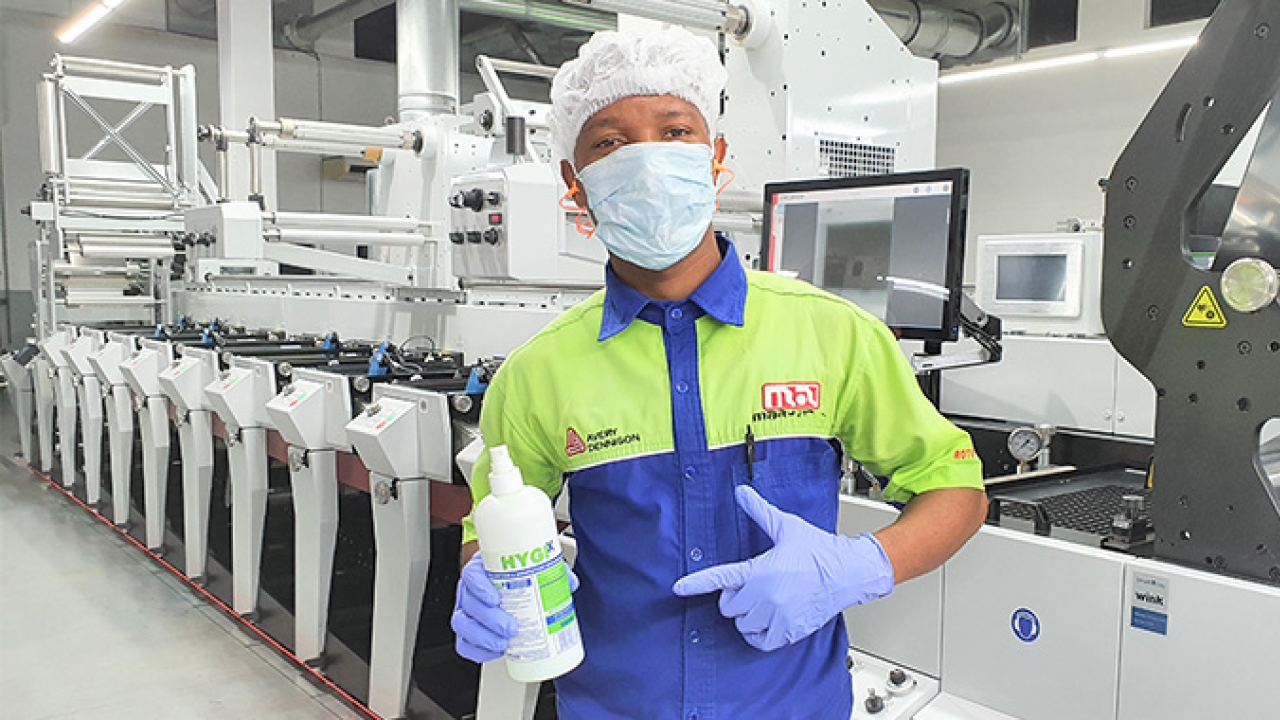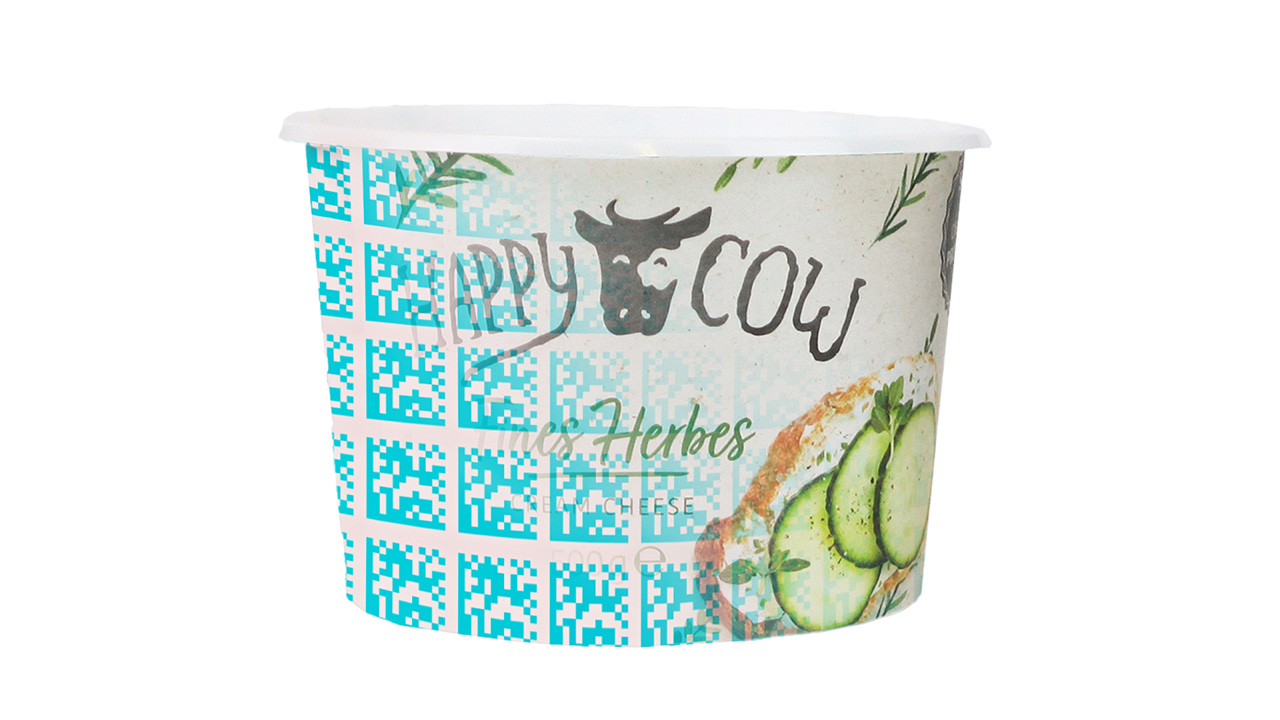Their finest hour

Each part of the network is experiencing its own set of challenges and finding fresh ways to overcome them, even uncovering some hidden opportunities – for instance, diversifying into the production of masks and shields.
It’s not unexpected to learn that multinational converters operating in this country are well placed to meet such challenges, thanks to their global footprints, strong financial profiles, and approved suppliers located around the globe. Prime examples are groups such as Amcor, Berry Astrapak and Constantia Flexibles Afripack. As producers of packaging for vital goods, these converters are deemed to provide ‘essential services’ and have permits to continue operations, albeit with fewer shifts, and the enforcement of strict hygiene measures and physical distancing.
But not only are the multinationals on the front line, so are myriad independent operations, many family owned. Just one example is Durban-based label converter Siyakha Imperial Printing. ‘In this critical period, providing labels for essential goods such as food and pharmaceuticals is more important than ever,’ comments CEO, Rajesh Lutchman. ‘We’re helping our customers to supply these goods to the public in a swift and safe manner. We understand our responsibility to help prevent and slow the spread of Covid-19 and have refined our business response plan to combat all forms of transmission in and around our working environment.’
Packaging expertise transferred to PPE
Also evident is the diversion of typical packaging substrates into the personal protection equipment (PPE) market. Among protection methods against the spread of Covid-19, for example, is the ‘sneeze screen’. Erected between health workers and patients, these screens are manufactured from acrylic, polycarbonate or polyester.
At the forefront of material supply for such prevention campaigns is Maizey Plastics, the South African distributor of Plexiglas acrylic, Impex polycarbonate, Lumex PET/PETG, and other plastics. With the backing of these professional brands, Maizey’s management moved swiftly and rose to the challenge.
‘We’re busy fielding enquiries and our suppliers have provided support every step of the way,’ comments Wessel van der Merwe, CEO of Maizey Plastics. ‘What has been truly amazing is the innovative ways in which our customers have converted clear plastic sheeting to make screens and masks as quickly and cost-effectively as possible. We’re supplying fabricators, hospitals, major retail chains, the police service and even the military.’
Also playing a role is Berry Astrapak, whose packaging operations around the country have not only ensured stringent cleaning and sanitizing regimes in the production of packaging for critical goods, but is also engaged in the bid to protect health workers against the virus.
For example, Berry’s Thermopac division, in Cape Town, typically extrudes its own sheet requirements for the manufacture of food-grade plastics packaging, but recently identified an opportunity to produce APET plastic sheeting to fulfil an order for plastic visors, required for use in the medical field.
And in Durban, the group’s Spec Tool & Die operation recently completed urgent tooling to meet increased demand for sanitizer bottles, producing molds for flip-top closures to fit Boston round bottles used for hand sanitizers.
Similarly, JJ Precision, also based in Durban, is manufacturing closures for a number of essential products, including hand sanitizers
Support for waste reclaimers
Then there’s the human aspect – truly heart-warming actions have helped citizens in dire need.
Industry bodies and government, for instance, have jointly provided food vouchers for waste pickers and reclaimers whose livelihoods were threatened during the first five weeks of lockdown, when recycling was not deemed an essential service, and their incomes dried up.
According to plastics industry body Plastics|SA, South Africa has close to 60,000 waste pickers who play a pivotal role in the country’s waste management industry. As part of the country’s informal waste sector, they help recover recyclables from household waste streams, as well as waste materials sent to landfill sites. With the country in lockdown, they unexpectedly found themselves unable to put food on the table.
‘It’s clear that South Africa not only faces a global health pandemic but increasingly the possibility of a humanitarian crisis,’ notes Anton Hanekom, executive director of Plastics|SA.
In response to a request made by Packaging SA (the packaging industry umbrella body) and working in close partnership with the Department of Environment, Forestry & Fisheries (DEFF), the associations representing waste pickers/ reclaimers (the SA Waste Pickers Association and African Reclaimers Organisation), and a number of PROs (Producer Responsibility Organisations), some 780,000 ZAR (42,334 USD) has been raised. These funds will assist almost 4,000 pickers who will receive 200 ZAR (10.85 USD) vouchers for essential food.
Aside from supporting their families, these informal waste reclaimers provide valuable plastic feedstock to buyback centers and recycling plants. They form the backbone of South Africa’s recycling economy and enable the country to achieve exceptional recycling rates.
These efforts are exemplified by donations to co-operative members in Vaalpark (Gauteng).
‘Owing to the lockdown and the exclusion of recycling as an essential service for health and safety reasons, these co-operative members and many other reclaimers in the vicinity are experiencing extreme hardship with no source of income,’ explains Cheri Scholtz, CEO of PETCO (PET Recycling Co). This donation is one of many being coordinated under the umbrella of Packaging SA and DEFF.’
SAWPA chairman Simon Mbatha confirms that such donations will help alleviate some of the hardships being experienced by reclaimers. ‘I believe by working together we can find solutions that will alleviate poverty for those working in the waste value chain,’ he comments.
Stay up to date
Subscribe to the free Label News newsletter and receive the latest content every week. We'll never share your email address.


